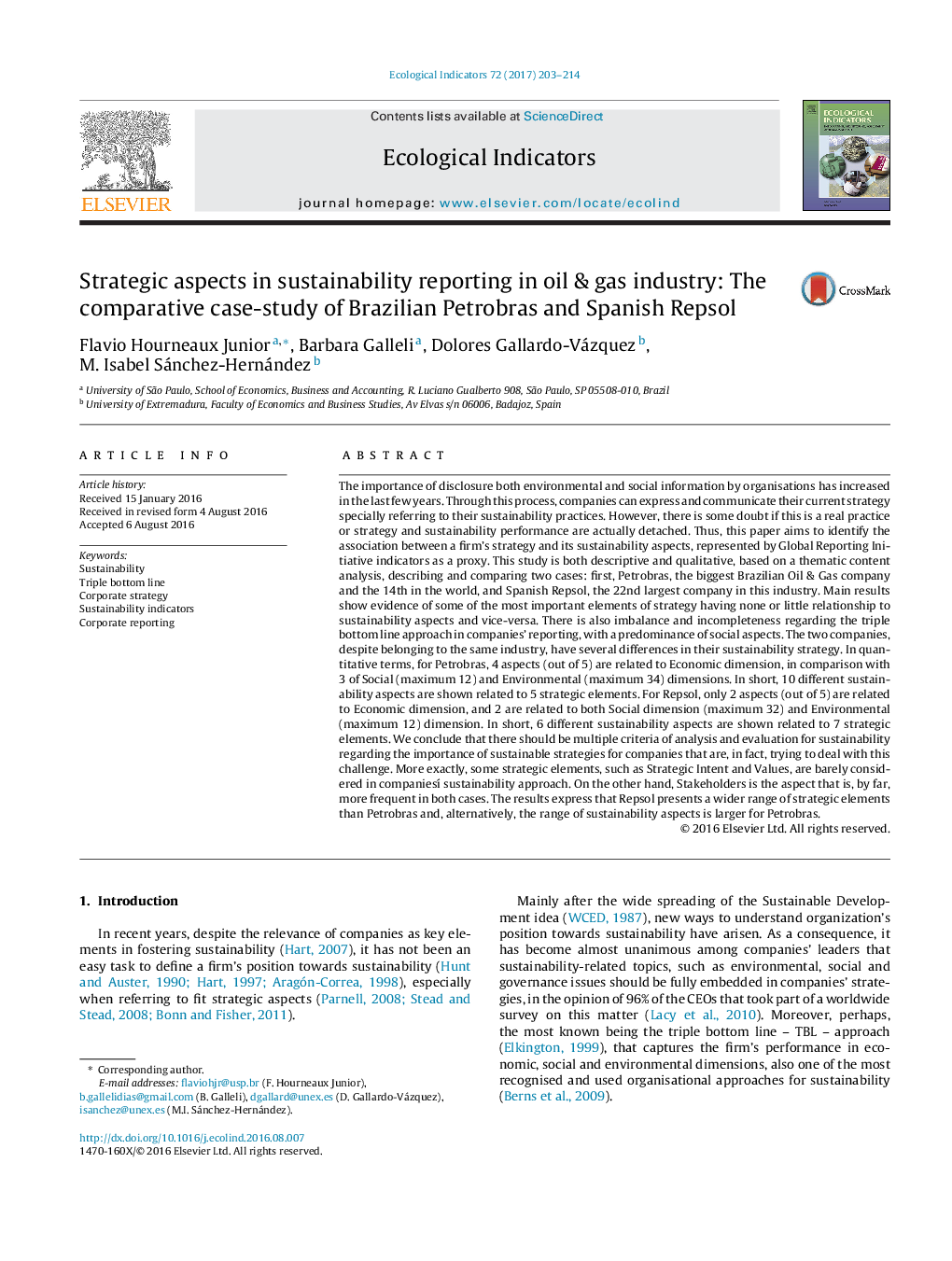| Article ID | Journal | Published Year | Pages | File Type |
|---|---|---|---|---|
| 6292737 | Ecological Indicators | 2017 | 12 Pages |
Abstract
The importance of disclosure both environmental and social information by organisations has increased in the last few years. Through this process, companies can express and communicate their current strategy specially referring to their sustainability practices. However, there is some doubt if this is a real practice or strategy and sustainability performance are actually detached. Thus, this paper aims to identify the association between a firm's strategy and its sustainability aspects, represented by Global Reporting Initiative indicators as a proxy. This study is both descriptive and qualitative, based on a thematic content analysis, describing and comparing two cases: first, Petrobras, the biggest Brazilian Oil & Gas company and the 14th in the world, and Spanish Repsol, the 22nd largest company in this industry. Main results show evidence of some of the most important elements of strategy having none or little relationship to sustainability aspects and vice-versa. There is also imbalance and incompleteness regarding the triple bottom line approach in companies' reporting, with a predominance of social aspects. The two companies, despite belonging to the same industry, have several differences in their sustainability strategy. In quantitative terms, for Petrobras, 4 aspects (out of 5) are related to Economic dimension, in comparison with 3 of Social (maximum 12) and Environmental (maximum 34) dimensions. In short, 10 different sustainability aspects are shown related to 5 strategic elements. For Repsol, only 2 aspects (out of 5) are related to Economic dimension, and 2 are related to both Social dimension (maximum 32) and Environmental (maximum 12) dimension. In short, 6 different sustainability aspects are shown related to 7 strategic elements. We conclude that there should be multiple criteria of analysis and evaluation for sustainability regarding the importance of sustainable strategies for companies that are, in fact, trying to deal with this challenge. More exactly, some strategic elements, such as Strategic Intent and Values, are barely considered in companieÅ sustainability approach. On the other hand, Stakeholders is the aspect that is, by far, more frequent in both cases. The results express that Repsol presents a wider range of strategic elements than Petrobras and, alternatively, the range of sustainability aspects is larger for Petrobras.
Keywords
Related Topics
Life Sciences
Agricultural and Biological Sciences
Ecology, Evolution, Behavior and Systematics
Authors
Flavio Hourneaux Junior, Barbara Galleli, Dolores Gallardo-Vázquez, M. Isabel Sánchez-Hernández,
